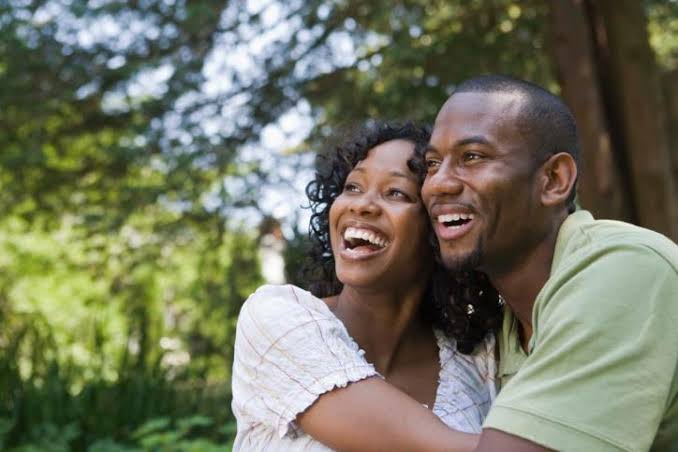Sex & Relashionships
The Intimacy Code: Unlocking the Secrets to Deeper Connection

As I lay in bed, wrapped in the warmth of my partner’s embrace, I felt a sense of intimacy that went far beyond the physical act of sex. It was as if our bodies had merged into one, our hearts beating in perfect harmony. In that moment, I knew that intimacy was not just about sex, but about connection, vulnerability, and trust. And I wondered, what if we could crack the code to unlocking this level of intimacy, not just in the bedroom, but in every aspect of our relationships?
Intimacy is the thread that weaves together the fabric of any meaningful relationship. It’s the whispered secrets, the gentle touches, and the deep, soulful connections that make us feel seen, heard, and loved. But for many of us, intimacy can be elusive, especially when it comes to sex. We may feel disconnected, anxious, or unsure of how to bridge the gap between ourselves and our partner.
The Pre-Game Show: Setting the Stage for Intimacy

Before sex even begins, there are ways to cultivate intimacy and set the stage for a deeper connection. It starts with communication – talking openly and honestly with your partner about your desires, fears, and boundaries. This can be as simple as asking your partner what they like, what they don’t like, and what makes them feel loved and appreciated.
Another key aspect of pre-sex intimacy is emotional connection. Take time to reconnect with your partner, whether it’s through a romantic dinner, a relaxing bath, or a simple conversation. This helps to build trust, vulnerability, and a sense of safety, all of which are essential for intimacy.
The Main Event: Intimacy During Sex

When it comes to sex, intimacy is not just about the physical act, but about the emotional connection that accompanies it. This means being present, focused, and fully engaged with your partner. It means looking into their eyes, touching their skin, and feeling their heartbeat.
One way to cultivate intimacy during sex is through slow, sensual movements. Take your time, savor the moment, and let your partner know that you’re fully present and engaged. You can also try incorporating intimacy-building activities, such as massage, eye gazing, or simply holding each other.
The Aftermath: Nurturing Intimacy After Sex

After sex, it’s easy to get caught up in the hustle and bustle of daily life, forgetting to nurture the intimacy that you’ve just cultivated. But this is a critical moment in the intimacy cycle. Take time to cuddle, talk, and reconnect with your partner. This helps to solidify the emotional bond that you’ve created and sets the stage for future intimate encounters.
One way to nurture intimacy after sex is through affectionate touch. Hold hands, give hugs, and shower each other with kisses. You can also try incorporating intimate rituals, such as sharing a glass of wine, reading a book together, or simply enjoying each other’s company in silence.
As I drifted off to sleep that night, wrapped in the warmth of my partner’s embrace, I knew that I had cracked the intimacy code. It wasn’t just about sex; it was about connection, vulnerability, and trust. And I knew that with this code, I could unlock a deeper level of intimacy in every aspect of my relationships, and live a life filled with love, connection, and meaning.
Sex & Relashionships
‘Future Faking’ Is the Dating Red Flag You Can’t Ignore

In today’s dating culture, conversations about the future often start early. Someone talks about marriage within weeks, mentions introducing you to their family, or casually includes you in plans that stretch years ahead. On the surface, it can feel reassuring. In reality, this pattern has a name, and it rarely leads where it claims to be going.
Future faking describes a situation where one partner speaks confidently about long-term plans without taking any steps to make those plans real. The promises sound specific enough to feel sincere, yet nothing in the present changes. There is no progress, no clarity, and no movement beyond conversation. Over time, the future becomes a holding space rather than a destination.

Photo Credit – Google
What makes future faking difficult to identify is that it often looks like commitment. The language is intentional. The confidence is convincing. But commitment shows up in behaviour, not projections. Someone who genuinely plans a future begins to align their choices with it. They create timelines, address obstacles, and make decisions that affect both people, not just the person being reassured.
In many dating situations, especially where expectations around marriage and stability are culturally significant, future faking can subtly extend relationships that are no longer growing. One partner remains emotionally invested, waiting for clear next steps that are repeatedly postponed. The other maintains closeness without accountability, often shifting the goalposts when questions become more direct.

Photo Credit – Google
This behaviour does not always come from malice. Some people enjoy the comfort of emotional security without the responsibility that commitment requires. Others are unsure of what they want but use future plans to avoid difficult conversations in the present. Regardless of intent, the effect is the same. Time passes, expectations deepen, and clarity never arrives.
A consistent sign of future faking is vagueness. Plans are described without dates. Decisions are delayed indefinitely. Conversations about progress are met with reassurance instead of action. When pressed, the future remains flexible, conditional, or dependent on circumstances that never seem to resolve.

Photo Credit – Google
Recognising future faking is not about distrusting optimism or shutting down conversations about what lies ahead. It is about paying attention to alignment. When words repeatedly outpace actions, the imbalance becomes information. Dating is not sustained by promises alone. It is sustained by evidence of shared direction.
In the end, the most reliable indicator of intent is not how vividly someone describes the future, but how seriously they engage with the present. Where effort is consistent, plans tend to follow. Where effort stalls, promises often replace progress.
Sex & Relashionships
Dating App Worth Swiping Right on in 2026

Online dating looks different in 2026. Swiping is no longer a pastime. For many, it has become a deliberate way to meet people who fit into real life. Whether the goal is romance, companionship, or something in between, expectations are clearer than they used to be.
Here is a look at the dating apps proving useful this year, based on how people are engaging with them in real life.
Tinder: Where Everyone Seems to Be

Photo Credit – Google
Tinder continues to dominate because of its sheer user base. In major cities, it is almost impossible not to find someone nearby.
The challenge lies in filtering profiles. While some users are serious about dating, others are only interested in casual chats or brief connections. Making Tinder work depends on being honest in your profile and clear in your conversations from the start.
Bumble: Women Call the Shots

Photo Credit – Google
Bumble stands out because it puts women in control of conversations. After a match is made, only women can initiate contact, which helps reduce unwanted messages.
The app goes beyond dating. It also allows users to build friendships or make professional connections. This flexibility makes it appealing to people juggling busy work and social schedules.
Badoo: Casual or Serious? You Decide

Photo Credit – Google
Badoo offers flexibility. Features such as “people nearby” and video chats make it easy to meet new people without much pressure.
The user base is mixed. Some are looking for meaningful relationships, while others prefer light conversations. Being selective and engaging thoughtfully improves the experience.
Apps Built with Local Culture in Mind

Photo Credit – Google
Alongside global platforms, locally focused apps are gaining attention. These services are designed with cultural context and communication habits in mind, making them easier to navigate and more practical for everyday use.
Location-based matching, profile verification, and fewer paywalls increase the chances of real-life meetings rather than endless online chatting.
A Quick Reality Check

Photo Credit – Google
No dating app is perfect. Fake profiles, unclear intentions, and ghosting still happen. What makes the difference is how the platform is used:
Be honest in your profile
Decide early whether you want friendship, casual dating, or a long-term relationship
Communicate clearly and respectfully
People who follow these basics tend to have better experiences, regardless of the app they choose.
Which App Should You Try?

Photo Credit – Google
Tinder: Best for a large pool of potential matches
Bumble: Ideal if you prefer women to initiate conversations
Badoo: Works for those open to both casual chats and serious connections
Local apps: Useful for features shaped around cultural familiarity and practical use
In 2026, dating apps are tools, not solutions on their own. The right choice depends on your goals, lifestyle, and level of intention. With patience and clarity, these platforms can still lead to meaningful connections. In a year where time feels increasingly limited, the right dating app is the one that respects it.
Sex & Relashionships
Ghostlighting: The Relationship Red Flag People Are Only Just Naming

You’ve probably heard of ghosting and gaslighting. But there’s a newer, subtler danger lurking in modern relationships: ghostlighting. It’s sneaky, confusing, and, until recently, had no name.
Ghostlighting happens when someone disappears, with texts unanswered and calls ignored, and then, when they finally respond, they dismiss your feelings. Suddenly, you’re the “overthinking” one, questioning your own reaction. Unlike ghosting, which is abrupt and final, ghostlighting keeps you hanging in uncertainty. And unlike gaslighting, it doesn’t rely on lies; it works through inconsistency and minimization, leaving you second-guessing yourself.

Photo – Google
This isn’t just a dating quirk. Over time, ghostlighting can erode confidence, damage self-esteem, and make it hard to trust your instincts. It thrives in early relationships, but it can show up anywhere, even in long-term partnerships or friendships.

Photo – Google
How do you spot it? Watch for repeated patterns: disappearing for days or weeks, giving excuses that don’t match the behavior, dismissing your emotions, or making you feel “too sensitive.” If this sounds familiar, take it seriously. Healthy relationships are consistent, communicate openly, and respect boundaries. Ghostlighting is none of these.

Photo – Google
Naming ghostlighting isn’t about shaming anyone; it’s about recognizing harmful behavior. Once you see it for what it is, you can protect yourself, set limits, and trust your feelings again.
Relationships are complicated, but knowing the warning signs makes navigating them easier. Ghostlighting may be subtle, but understanding it is a step toward healthier connections and toward respecting yourself enough not to settle for anything less.
-

 Celebrity Style4 months ago
Celebrity Style4 months agoMercy Aigbe Keeps it Sharp in Ivory Dress
-

 Celebrity Style5 months ago
Celebrity Style5 months agoTwo Ways to Wear a Suit, According to Liquorose
-

 Celebrity Style4 months ago
Celebrity Style4 months agoBella Okagbue Puts a Spin on Feminine Suiting
-

 Fashion5 months ago
Fashion5 months agoBella Okagbue Clean London Look
-

 Fashion4 months ago
Fashion4 months agoTeminikan Experiments with Geometry in a Woven Mini
-

 Music5 months ago
Music5 months agoTiwa Savage Was in New York for Her Album Media Run
-

 Celebrity Style5 months ago
Celebrity Style5 months agoTiwa Savage Ties Up New York in Style
-

 Health5 months ago
Health5 months agoWhich Fruits Are Highest in Calcium?
-

 Lagos Fashion Week3 months ago
Lagos Fashion Week3 months agoLagos Fashion Week’s Earthshot Prize Win Highlights a Changing Direction in African Fashion Production
-

 Beauty5 months ago
Beauty5 months agoMust Adapt Beauty Routine for Woman Above 25


























